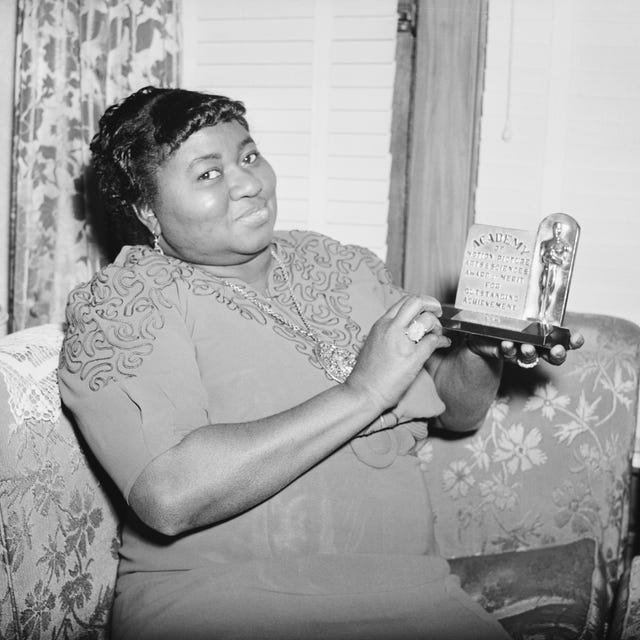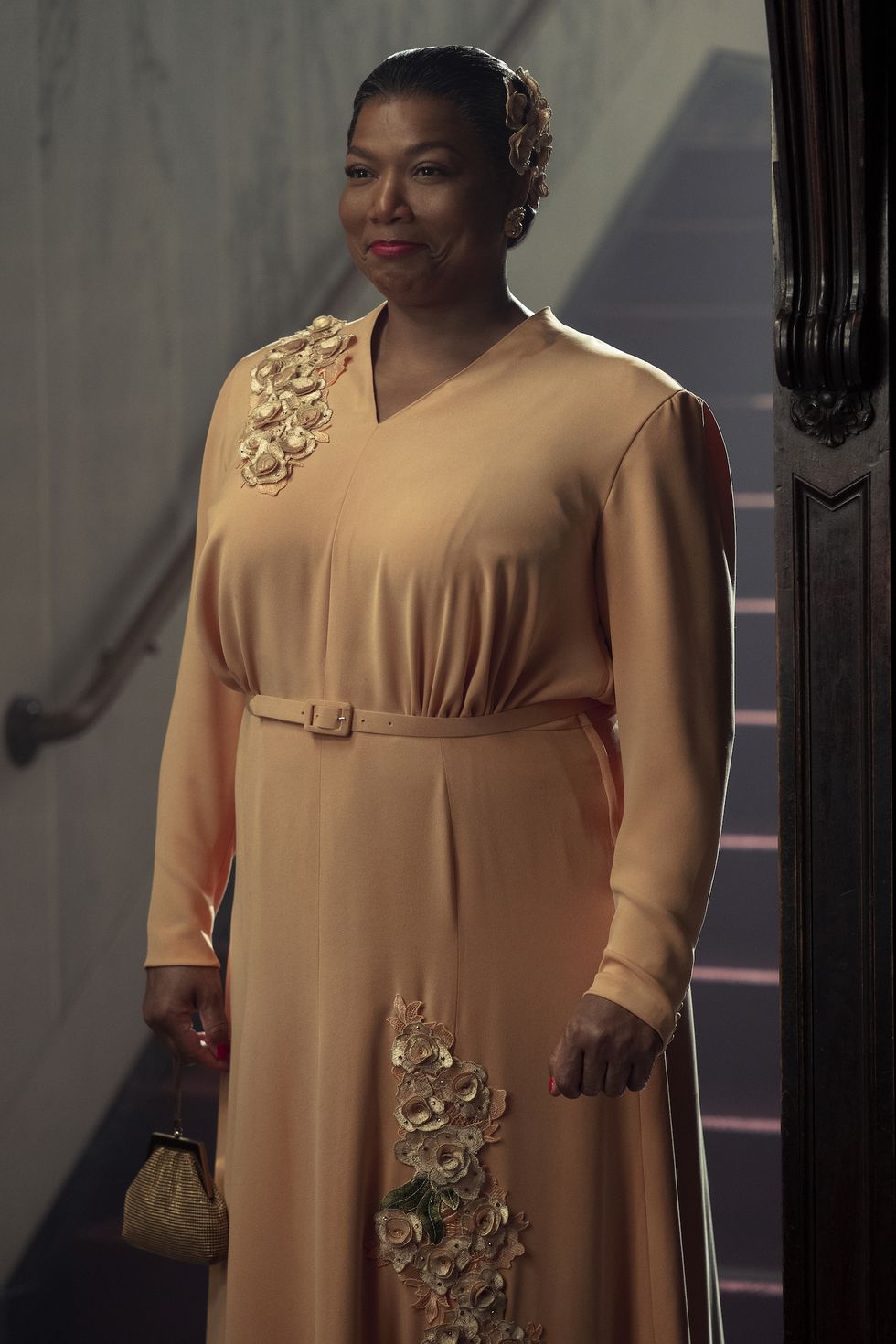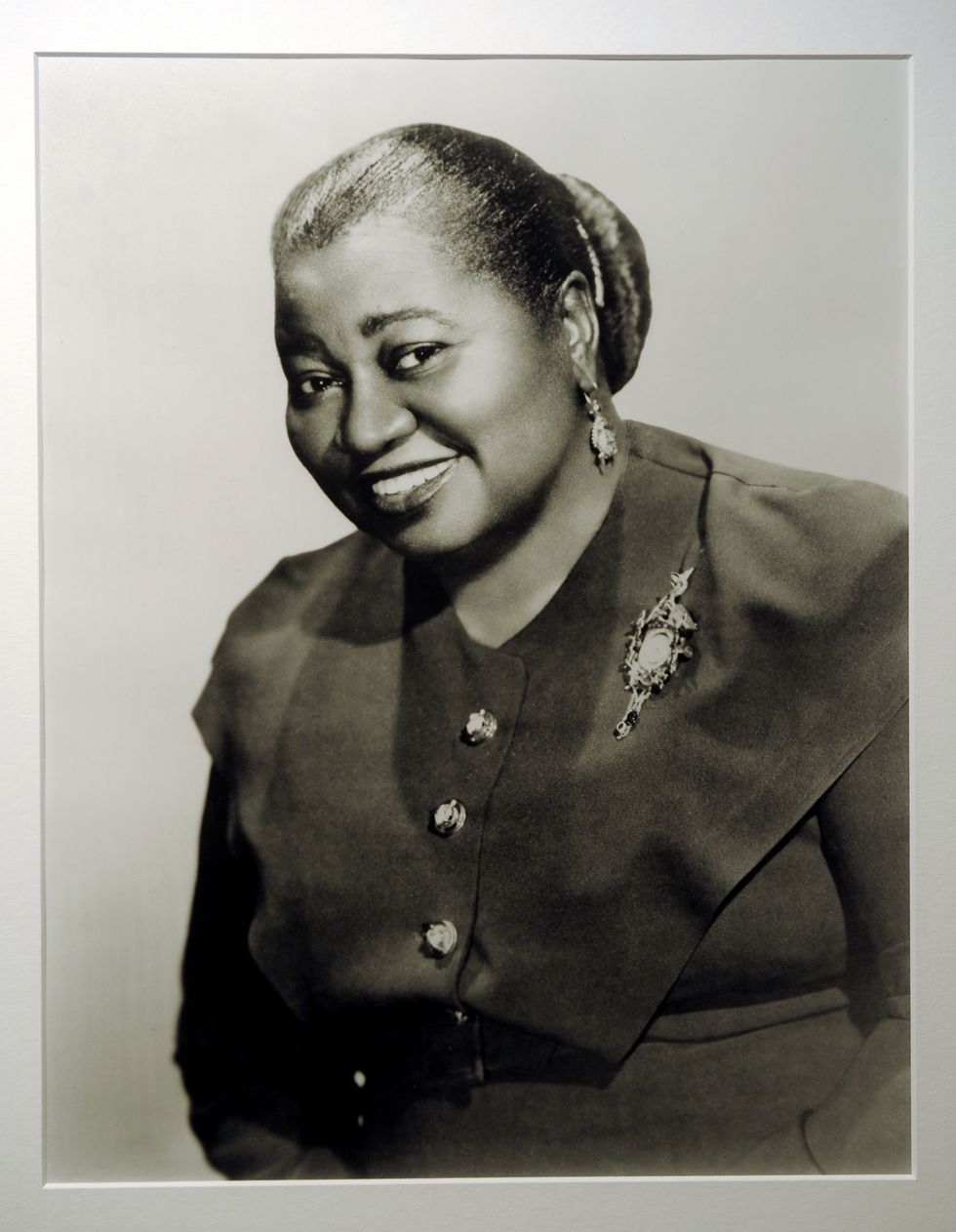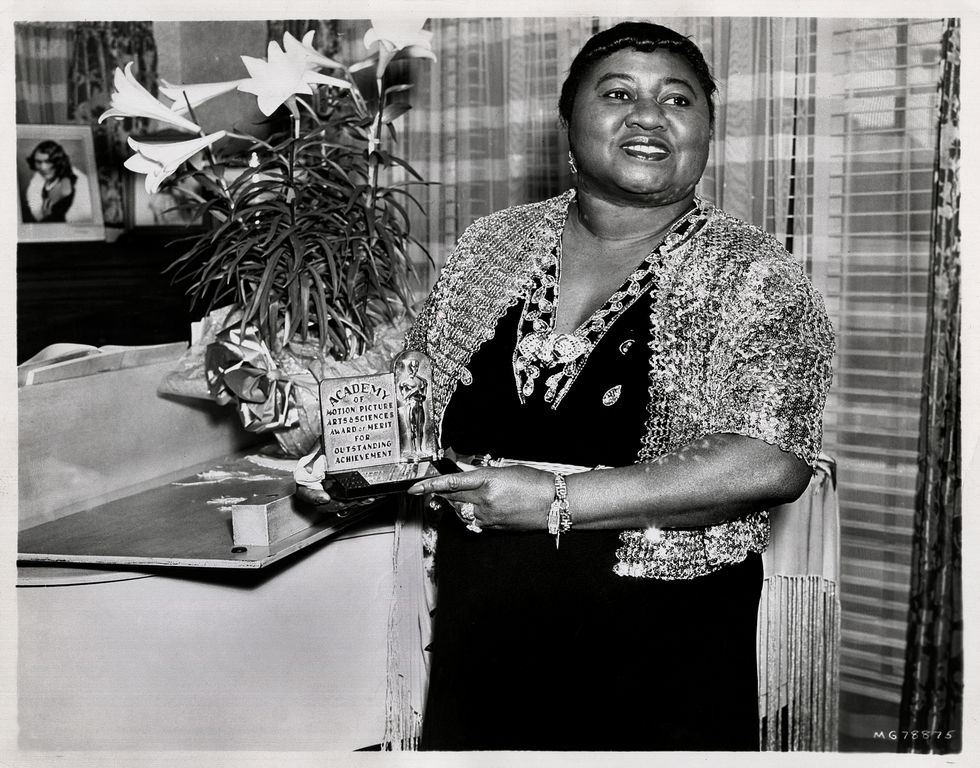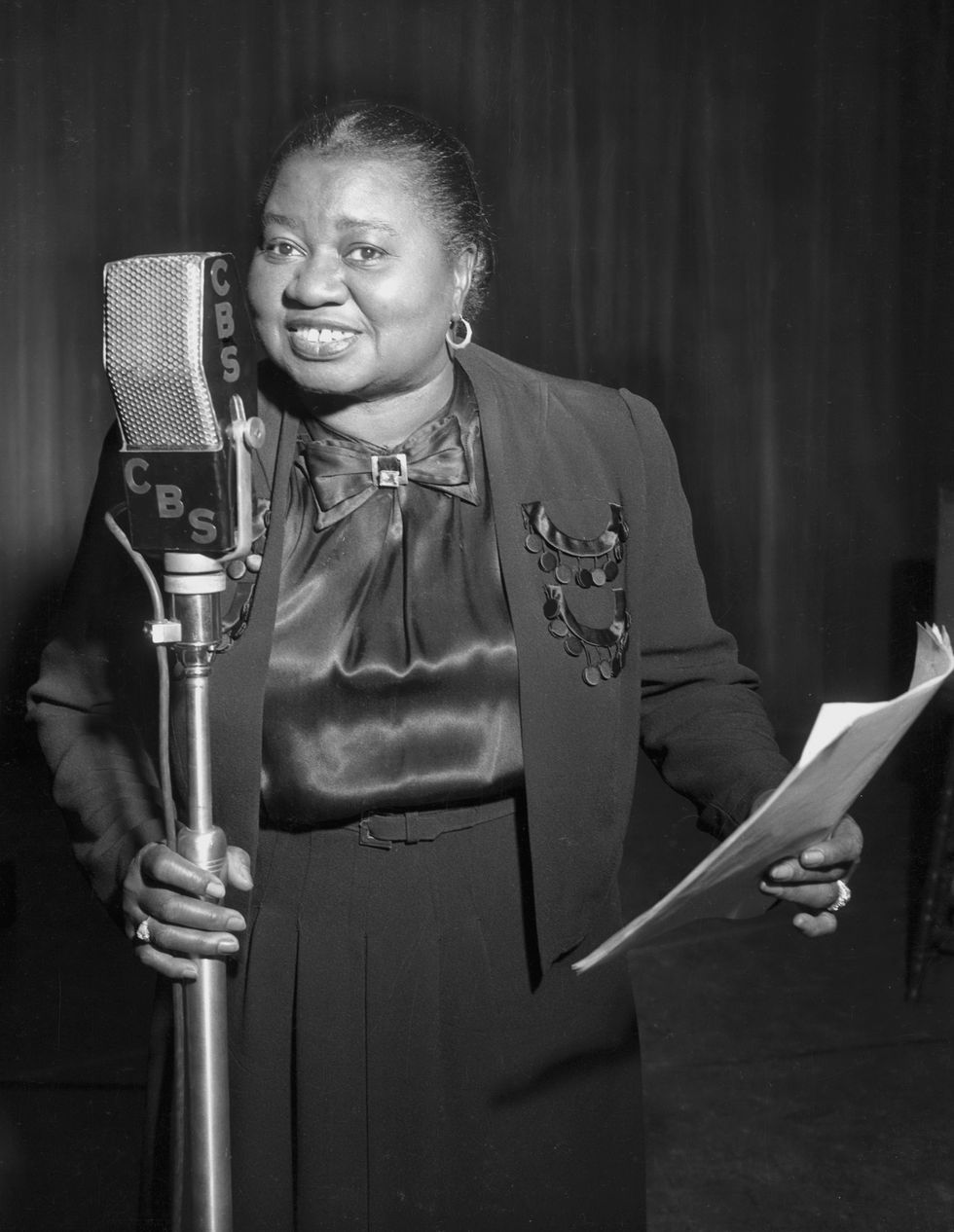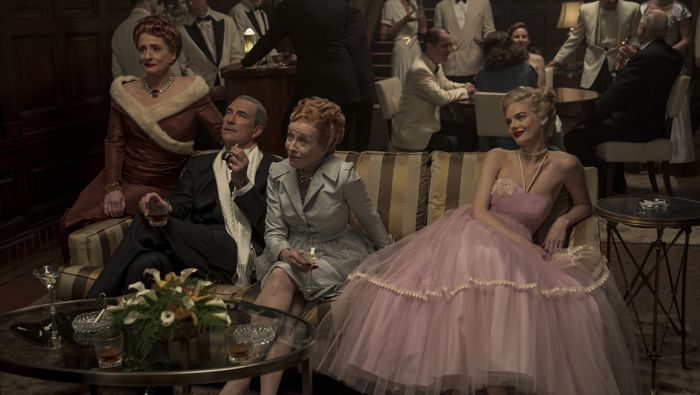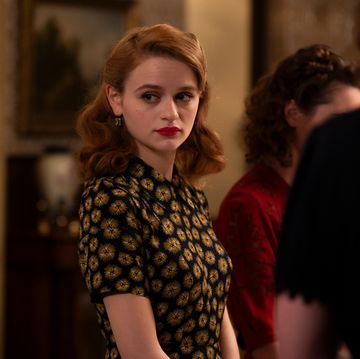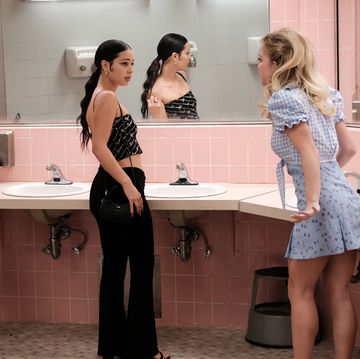With the new Netflix miniseries Hollywood, creator Ryan Murphy looked to revise some of the Golden Age of cinema's wrongs by writing more hopeful storylines for real-life stars forced to battle racism and homophobia. Among the historical figures in the show is Hattie McDaniel, portrayed by Queen Latifah, who was the first black actor to win an Academy Award. Here's what else you need to know about the Gone With the Wind star.
Performing came naturally to her.
McDaniel was born in in Wichita, Kansas in 1893, the youngest of thirteen children. Her father was a veteran of the Civil War and a former enslaved man. McDaniel began performing at a young age and left high school to act, sing, and dance on the stage and radio.
In 1931, McDaniel moved to Los Angeles to join two of her siblings in pursuing a film career. She quickly found roles but often played a maid. Her profile rising, she appeared in the 1935 comedy China Seas with Clark Gable, who became a lifelong friend.
Bing Crosby suggested McDaniel for Gone With the Wind.
The popularity of the 1936 book Gone With the Wind made the film adaptation a hot commodity. According to The Hollywood Reporter, producer David O. Selznick received a suggestion from Bing Crosby, who was friends with McDaniel's brother, to look at her for the part of Mammy, a former enslaved woman who chose to continue working on a plantation after the Civil War. The role was the rare co-starring part available to a black actress and led to quick fame for McDaniel, but she faced controversy on two sides. The NAACP saw Gone With the Wind's rose-colored depiction of slavery and frequent use of the N-word as unambiguously racist, while Jim Crow laws kept McDaniel from being able to attend the movie's premiere in Atlanta.
She won her Oscar at a segregated hotel.
When McDaniel arrived at the Ambassador Hotel’s Cocoanut Grove club for the Academy Award ceremony in 1940, she was seated not at the table where her fellow Gone With the Wind nominees sat, but in a small corner, far away from the action, according to The Hollywood Reporter. The hotel was segregated and no black patrons were allowed inside. If it were not for the intervention of producer David O. Selznick, McDaniel wouldn’t have been let into the ceremony at all.
Her win came as little surprise to the crowd, but the moment was poignant. "This is one of the happiest moments of my life," McDaniel said in her speech. "And I shall always hold it as a beacon for anything that I may be able to do in the future. I sincerely hope I shall always be a credit to my race and to the motion picture industry. My heart is too full to tell you just how I feel, and may I say thank you and God bless you."
She left a complicated legacy.
While some saw McDaniel's career as a landmark for racial equality, others were dismayed that she spent her career portraying servants and felt that she chose to play into harmful stereotypes. McDaniel played a maid at least 74 times over the course of her life. She was frank about her limited options, saying, “I’d rather play a maid and make $700 a week than be a maid and make $7.”
McDaniel never had another role as high profile as Gone With the Wind but she continued to work steadily. In 1947, she became the first black star of a radio show when she replaced the white actor Bob Corley on the CBS Radio comedy The Beulah Show. She was paid $1,000 a week.
In 1952, McDaniel died of breast cancer. She had hoped to be buried at the famed Hollywood Forever Cemetery. Heartbreakingly, the cemetery refused to allow her and she was interred elsewhere.
Her Oscar went missing.
Before trophies became customary for all Oscar winners, Best Supporting winners received a plaque. When McDaniel became ill, she donated hers to Howard University, which put it on display. At some point in the '70s, it became apparent the award had gone missing. There were a series of protests on campus during the '60s and '70s, and it's been suggested that the plaque could have either been stolen or gone missing during the tumult. George Washington University Law School Professor W. Burlette Carter spent a year investigating the disappearance and published her findings in a 2012 article for the Howard Law Journal. She concluded that the Oscar was likely returned to its rightful place at Howard at some point between 1971 and 1972, but no one knows where it's located on campus.
